Your cart is empty
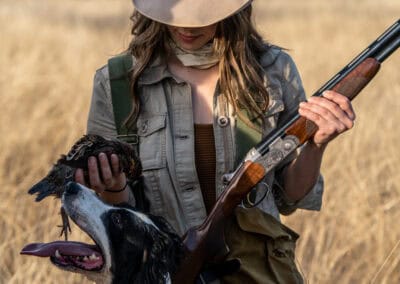
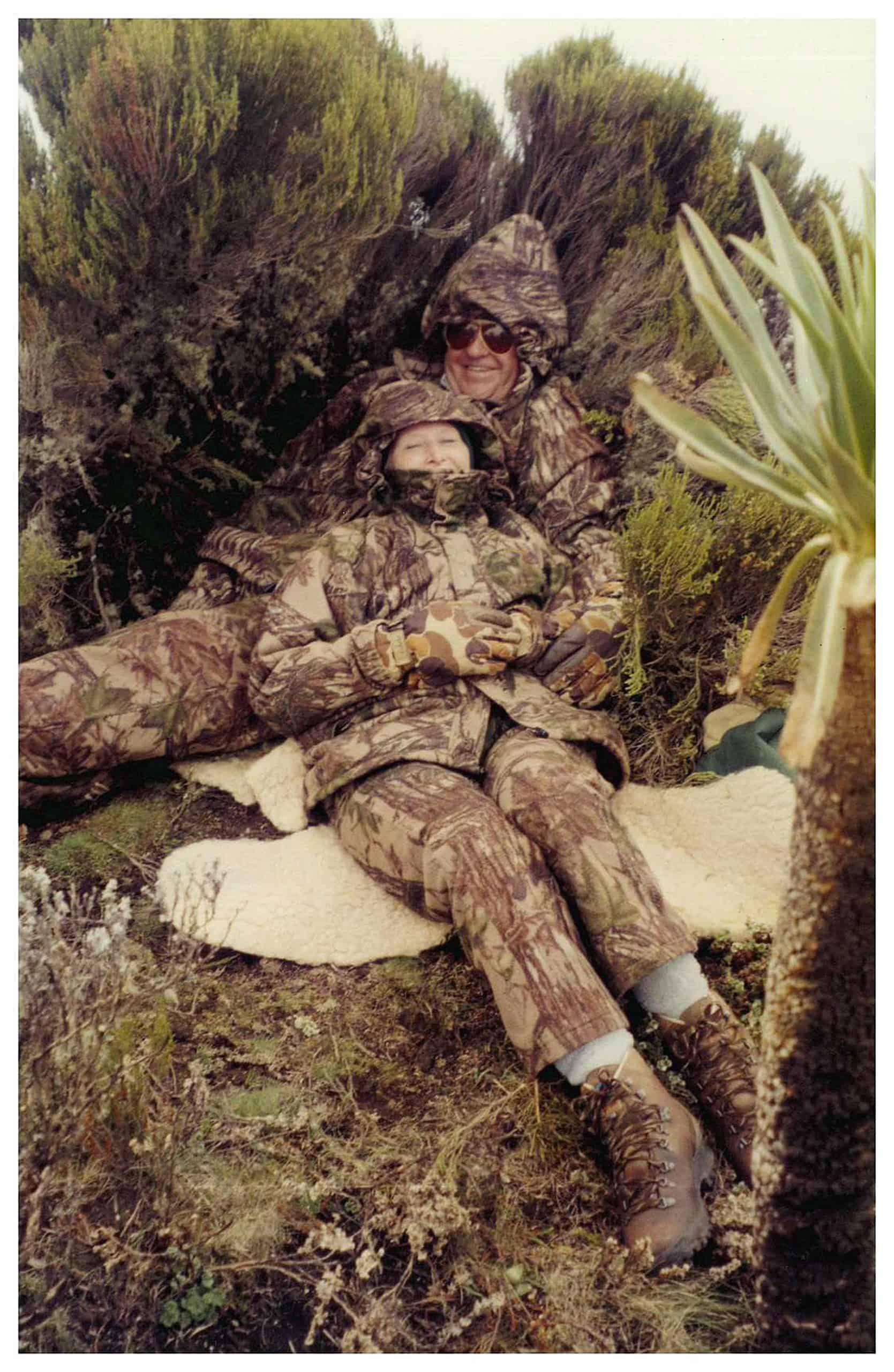
A CONVERSATION WITH MARY CABELA
INTERVIEW & PHOTOS BY Tyler Sharp
PRESENTED BY Cabela Family Foundation
From humble bargain cave beginnings to a sturdy and deserved rise to matriarchy in the hunting industry, one thing has remained a constant for Mary Cabela: family. Over the course of the week I spent in her company, it was increasingly evident that she was the thread that weaves multiple generations together, with her children and grandchildren always circling about. But if I was fooled by her maternal nature, I quickly learned that she has taken part in more hair-raising adventures than most, and has definitely gone on more hunts. From the highlands of Ethiopia to the far reaches of Alaska, the salt flats of glittering seas to the swamps of Botswana, Mary Cabela has lived a full life — a life unquestionably worth writing about. She even admitted to being a little bored in camp once the cheetah excitement was all over; she wanted to be out in the field in the middle of the action. A few helicopter patrols, lion dartings and collarings later, it seemed that her appetite for adventure was slaked, so I took the opportunity to sit down with her.
I had heard that Mary didn’t really like interviews, so I needed to find a way to make her feel comfortable. The plan: whisk her away in a Land Cruiser to the other camp, taking champagne and the podcast gear to sit down and hear more of her life story. What a story it was, and what follows is only an excerpt. Kind, humble and full of passion for wildlife conservation, it’s no wonder that she’s gained the level of respect and admiration from not only her family, but from just about anyone she meets. And though her best friend and partner in crime has since gone on to the great hunt in the sky, Mary proudly carries on Dick’s memory through her children, her grandchildren and an ever-growing conservation legacy that will have a lasting impact for generations to come. Mother to many in the family, yes, but now she is the mother of lions, and she will fiercely protect all of her pride until her fighting days are done.
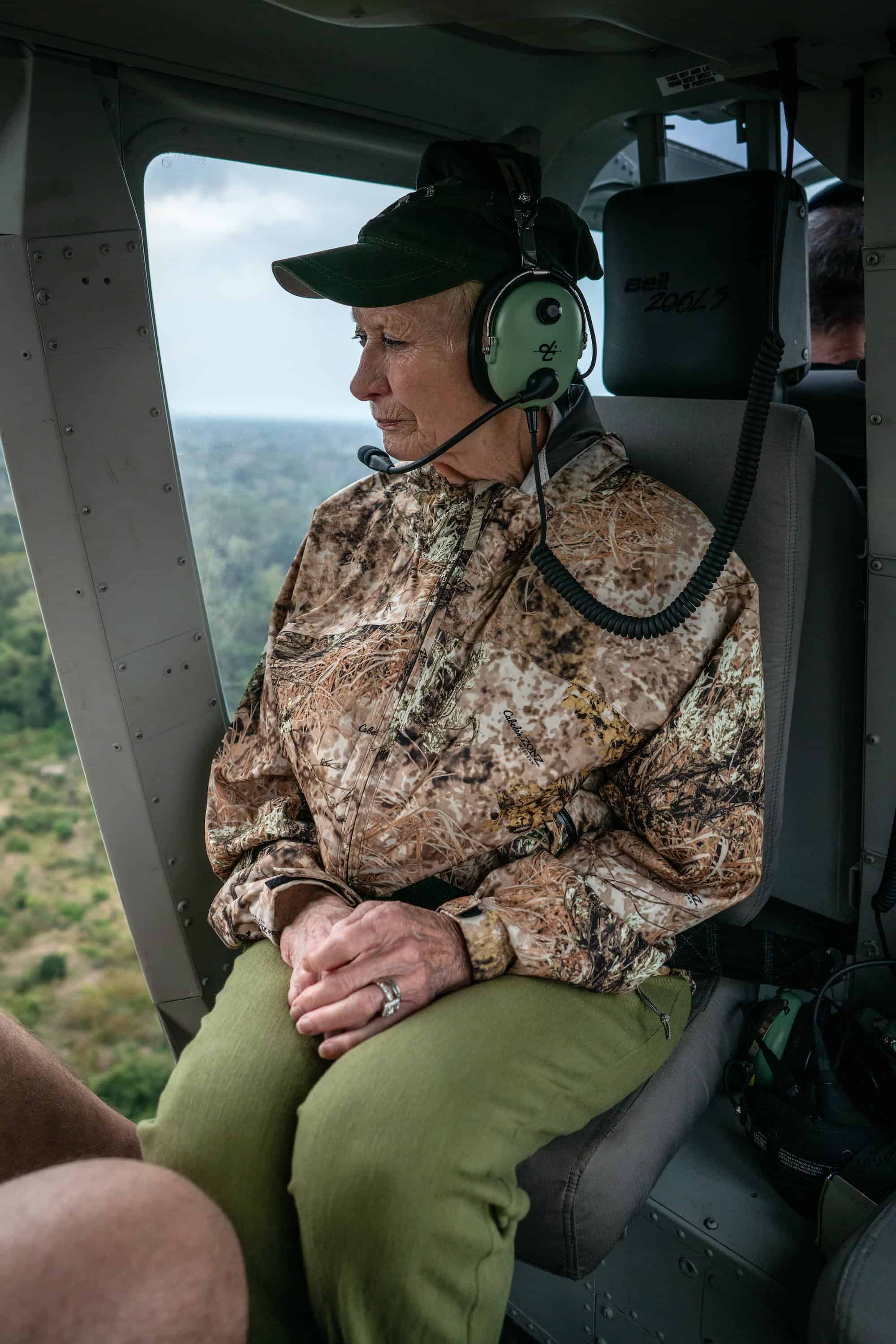
TYLER SHARP — To start us off, tell us a little bit about your family and how important it is to have everybody together and do these kinds of trips.
MARY CABELA — When I first started hunting, we would take the kids, because it was important to me that they know why I love Africa. I also wanted them to know how important it was for Dick and me to experience all this stuff together. Dick and I did everything together for 60 years.
TS — 60 years? Wow.
MC — When he passed away, that kind of disappeared and then the kids started saying, “Come with us, come with us.” When I was a child, we were very poor and my dad left my mother with five children. He was an entertainer, and of course he was never home, and he was an alcoholic. We never got to do things like this, and now the torch has been passed on, and we do a lot of things together. We’ll be doing a lot more of this too.
TS — Where did you meet Dick?
MC — I met Dick in Sidney, Nebraska, when I went to high school at an academy down there. When I first met him, I was the new girl in the school, so he and his friend Larry had a bet on who could date the new girl first. He asked me if I wanted to go to a movie with him, because that’s all we did for dates. I went with him but he told me his name was Larry. So for two weeks I thought his name was Larry, but his name was of course Dick. I was so mad at him when I found out he had lied about his name, but anyway, that’s where it all started. It was on purpose that God took me there, though, and we got married not long after. I was 18, he was 19, and he went to college in Denver. He didn’t finish college, but did get an honorary degree. Of course, I got pregnant right away, and that just started the whole thing.
We wanted to move to Chappell, Nebraska, which is his hometown, about 27 miles east of Sidney. We had our first four children in Chappell, and that’s where we started the business. Dick’s brother Jim was in the service, and when he came back Dick said he’d give him half the business if he’d come and help keep it going when he wasn’t there. And so that’s what happened. Jim came and worked, then Dick was able to quit the furniture store he was managing at that time. We lived on about $300 a month, for a long time. Everything went back into the business, and it was fine. We had a lot of great times and we just kind of instilled in our kids that hunting was good. That fishing was good. Of course, they loved to go when they were little, and that’s what put food on our table.
But the business started in our house. While Dick was working at the furniture store, he went to a gift show and saw in this little back booth these hand-tied flies from Japan, and he bought all they had — $25 worth of hand-tied flies. So he came home and said, “Well, we’re going to put them in a space ad because I’ve been looking at these ads for years in the back of Field & Stream and the same people are still in there. So it must be good. They must sell well.” So he put out an ad for five hand-tied flies: “send a dollar for flies, plus postage and handling,” The first ad didn’t work at all. We got one answer, and her name was Mrs. Ernest Lindle. I’ll never forget it.
So he changed the ad and said, “Five hand-tied flies, send a quarter for postage and handling.” And we got seven answers on that one. And he went back to Chicago to another gift show and the same guy was there. He bought some fly rods and that kind of stuff from him. I’d type customer names up on recipe cards and stick them in a shoebox in the pantry. Then we had to move to the little shed in the backyard, and that seemed to work pretty well. We had a lot of people coming in for that. And then we went to the basement of the furniture store, then across the street from the furniture store, then to the American Legion hall. This was all in Chappell, and we hired our first employee there. She was still with us when we sold to Bass Pro.
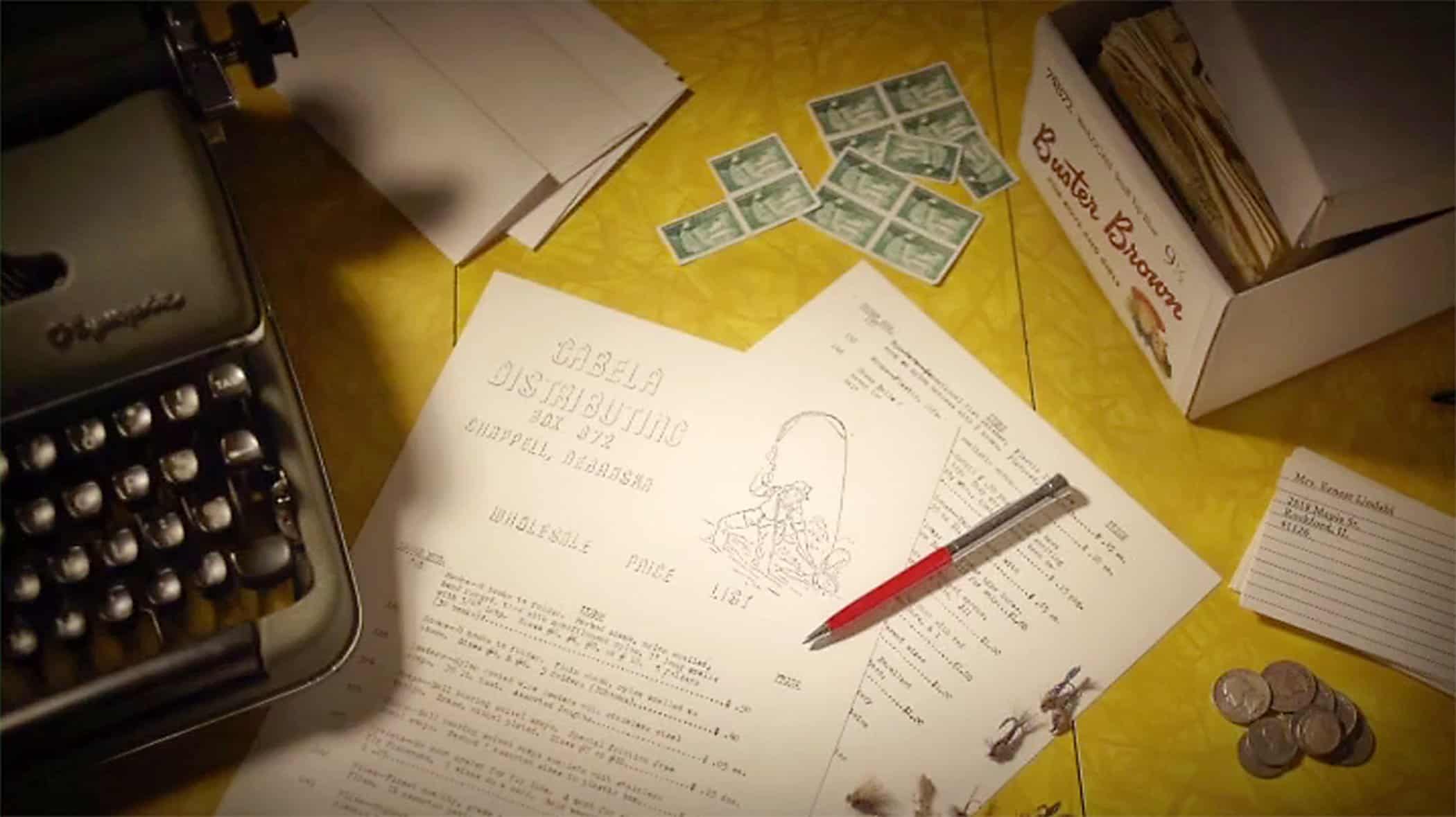
TS — Were your kids involved in the business?
MC — Yeah. I had the neighbor across the street come and stay with the kids. Dick would work from seven o’clock in the morning until he came home for dinner at seven o’clock at night and we’d eat dinner. And then I’d put the kids to bed, and the neighbor lady across the street would come over and stay with the kids and we’d go work on orders downtown. We worked almost every hour of the day that was available, but it was fun because we did it together and it was stuff we loved. I was not a hunter. I didn’t oppose him going hunting, because he actually put food on our table, but I was very anti-hunting.
TS — Really?
MC — Yeah, because I had raised a Bambi at my aunt’s ranch and fed it with a bottle and all that kind of stuff. They had a red scarf around her neck and some hunter shot her, and I was very upset. It made me an anti-hunter.
TS — So it was just a direct connection with nature and what it provides.
MC — Yes. After a while I did go bird hunting, and loved it. We had so much fun hunting pheasants when we had the time to. Eventually things took off and we had a lot more time to go hunting.
TS — What was the turning point that started the upward trajectory?
MC — In Chapell, this real estate agent came and said that the old John Deere building in Sidney was a three-story building and they wanted to sell it for a dollar per square foot. So we went up there and looked at it and thought, “Oh, we’ll never fill the building, but we’ll take it for a dollar per square foot.” So we paid $350,000 or something for the brick building, and it’s still there, but it’s not a Cabela’s anymore. That kind of just set the tone because it was busy, especially when we opened the Bargain Cave in the basement.
TS — Everyone loves a bargain cave.
MC — Yes. It was a real Bargain Cave. I’ll tell you, people loved it. We used to have a big yearly “Grand Opening.” People would come and they’d sleep overnight two, three nights in the parking lot. They’d have a band out there playing and all that kind of thing. It became an event. We had about a million people a year come to visit the store.
TS — But how did people know that this was a place? Was it word of mouth or was it continual advertising? How did you suddenly get a million people?
MC — Actually, our first catalog was a mimeograph sheet. Two sheets stapled together, and we sent it out to the names that I had typed up and it just worked. It just sort of grew from there. Once things started to take off, we were able to take more trips and do adventurous things.
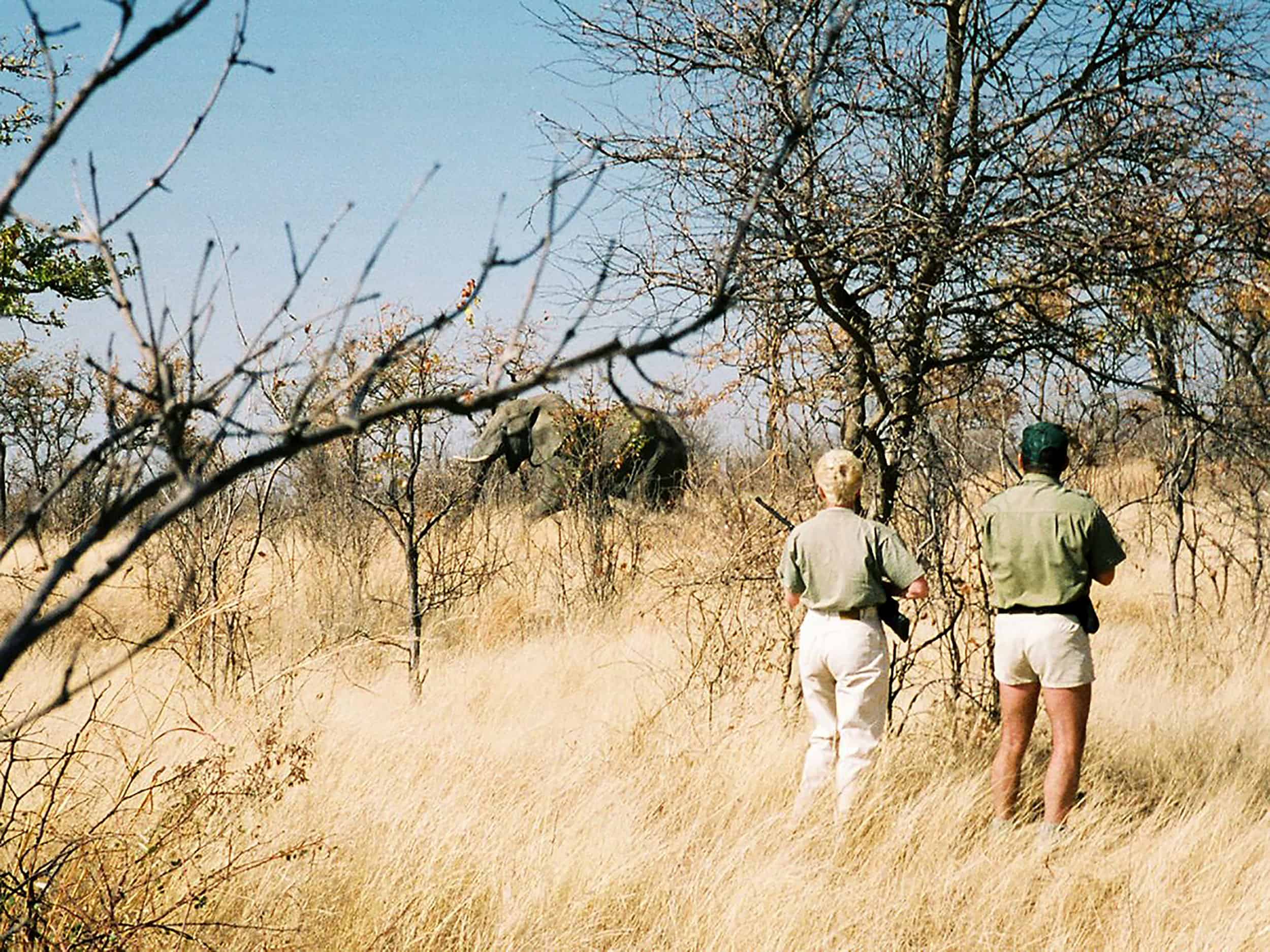
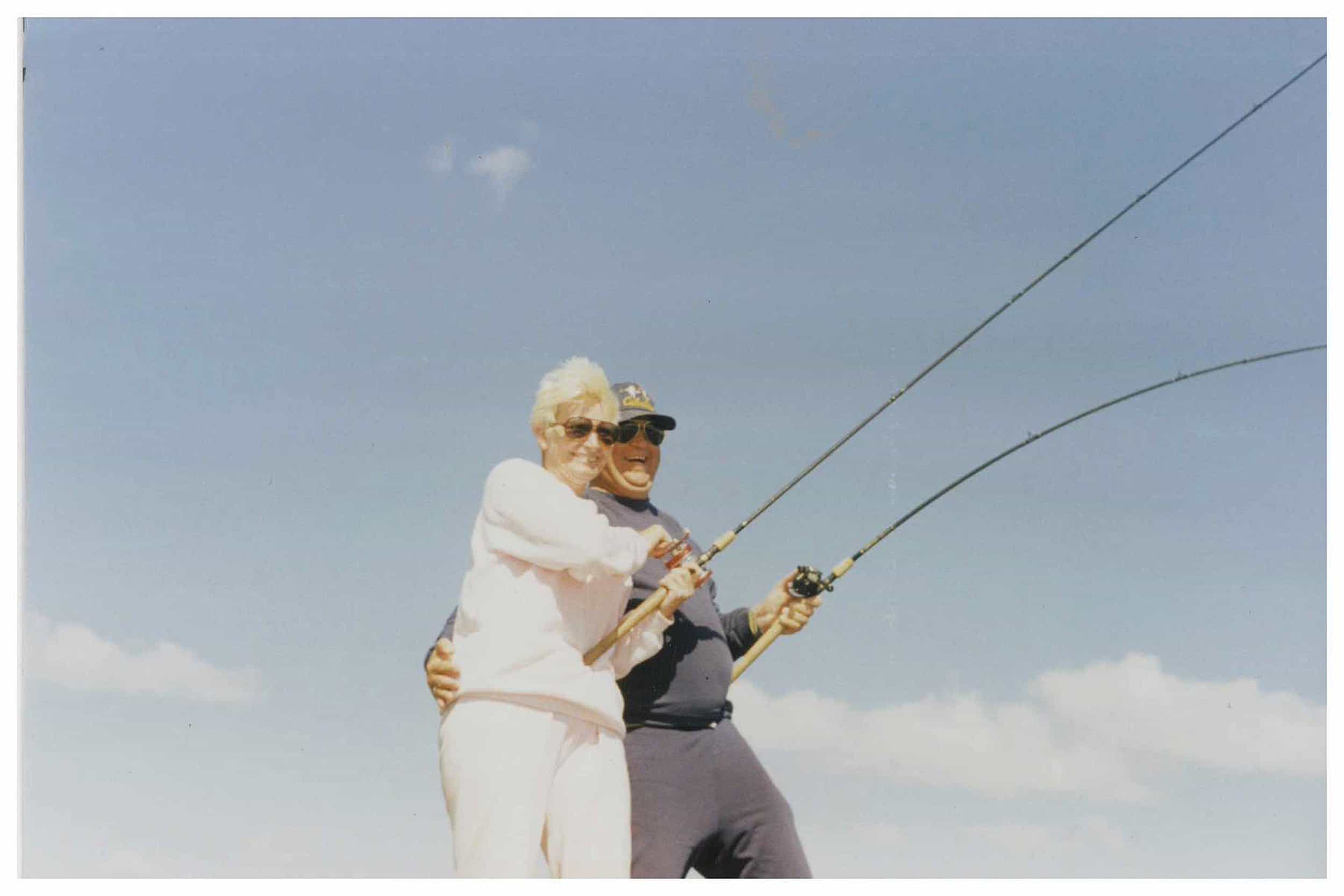
TS — When was your first trip to Africa?
MC — My first trip to Africa was in ’89, and it was the first time I went big game hunting.
TS — That’s when you became a hunter.
MC — Yeah. That’s when I became a hunter. I was 50. We went to Zimbabwe first, and we were there for three weeks and then we went to Botswana for three weeks and then we went to Kenya for three weeks. The three weeks in Kenya was a photographic safari.
TS — So nine weeks in a row, you did a trip through Africa? Did that completely change your life?
MC — It did. Zimbabwe was first, and we thought it was a fantastic safari, but you just went out with the guide and shot whatever they told you to shoot. We each took 32 animals on that trip, because we thought we’d never go back. But once we went to Botswana we really learned what a fantastic safari was. Botswana was amazing. In fact, when we got home, Dick said, “Oh no, I’ve created a monster.”
TS — And you’ve you been able to come back to Africa almost every year?
MC — Yes. One year Dick and I spent nine months in Africa, but not all together. We’d go home and come back and go home and come back. That was in ’97, I think.
TS — ’97. I would’ve been 14 and was about to go into high school. What are some of your favorite memories from those African safaris?
MC — They’re all favorite memories. I mean, I can’t tell you what happened yesterday, but when I go into my trophy room or give a tour, I can tell you everything that happened on those trips. I think my favorite country is Ethiopia, and it still is in a way, but it has changed so much. I still love it because I feel like the mountain nyala is probably one of the hardest hunts there is, and we did three safaris without ever getting one. They closed the country for two years, and when we went back the year they opened it up, we were both able to finally get a nyala, and those are just special memories in the trophy room.
Another one was the first elephant hunt I went on. The forest in Ethiopia was very thick, and you couldn’t see anything. You could hear their stomachs moving all the time, but you didn’t know if you were beside a baby calf or a mother and it was really scary. The elephants could walk through that thick forest like it wasn’t even there. It always amazes me how such a massive animal can move so quietly and so effortlessly through incredibly thick brush like that. We had to really chop our way through it to get anywhere. I ended up shooting my elephant first, but on Dick’s hunt it charged us and he had to shoot it at five yards. There were 14 trackers and gun bearers with us and they all left, just ran, and were gone with my gun. I don’t know where they went, but I thought, “I’ve got all those kids at home, so I better get the heck out here.” So I ran after them and I got caught in a Tarzan vine, and because I was shaking so hard, I couldn’t get out of that vine. So I just sat there waiting for the elephant to come kill me. Of course the elephant was down, but they took their pictures first and then they came and looked for me. I shook for about three days after that, but I’ll never forget that trip.
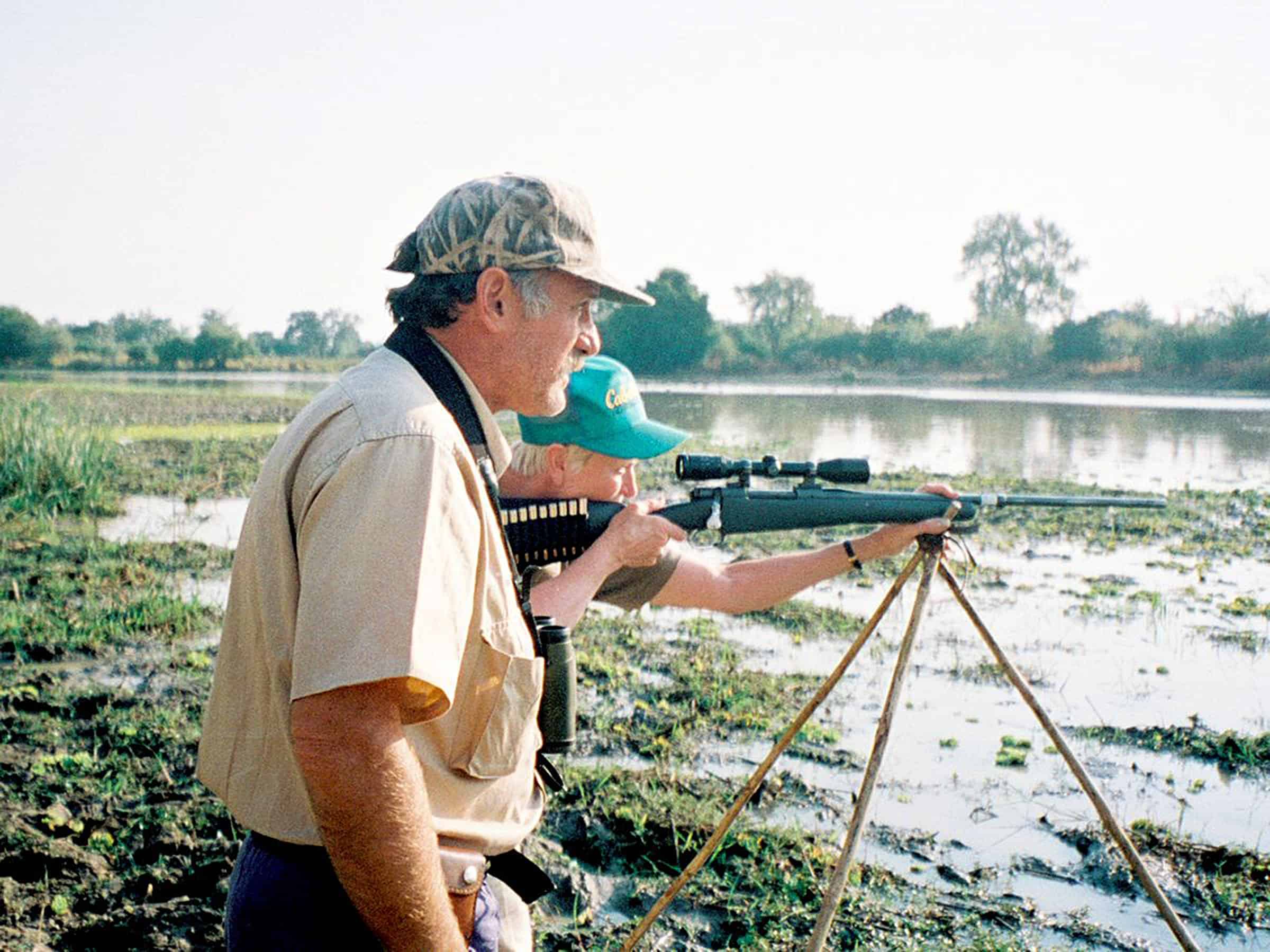
TS — Obviously it took a ton of hard work for you two to build the business up, but it’s pretty amazing that you were able to start to enjoy it and have fun. That must have been special to get to travel with Dick and go to all these incredible places.
MC — Yeah. It was, it was. And he wouldn’t go without me, we did everything together, and we had so much fun.
TS — At what point did your trips start to transition from just being hunting trips to involving conservation, like what we are witnessing here in Mozambique?
MC — Eventually we felt like we should give back and try to make a difference. Africa was changing and people were increasingly anti-hunting, so we developed the Cabela Family Foundation for that purpose. The kids picked up on it because we took them as often as we could. When they’d get married, they’d go on their honeymoon and then they’d join us over here and it opened their eyes to a lot of things. Because by that time there was no want in our family, we had whatever we needed. It was a way to show them how people live in different ways, and what it’s like to be around all of the beautiful animals and good people that you hunt with. So it just instilled that in them, and now they all just want to come whenever they can. I have 25 grandkids and the 26th one on the way, so we’re going to bring them all.
TS — We knew about the Twenty Four Lions project, but we had no idea how vast it was. It was pretty amazing to be in the helicopter with you when they darted the first of the lion cubs born here.
MC — That was, wasn’t it? It was amazing for me too. Ivan Carter approached Dan a few years ago about helping with reintroductions into this area of Mozambique. Dan came to me and said, “Okay, we have a chance to do a huge lion reintroduction, would you like to help bring them back to this area?” And I said, “Oh, I’d love to.” I love lions, but it was also because of Richard the Lionheart I guess. It took several years before we were able to do it, but it was such an amazing thing to accomplish. I was even there when they were darting them and putting them on the plane, and even rode on the plane with them.
TS — You were on the plane with all the sleeping lions?
MC — Yes, they were just lying in the back of the plane. There were six of them next to me and it was quite an experience. I said to the pilot, “Well, how do you feel about having these lions in your plane?” And he said, “As long as they stay asleep, it’s okay.”
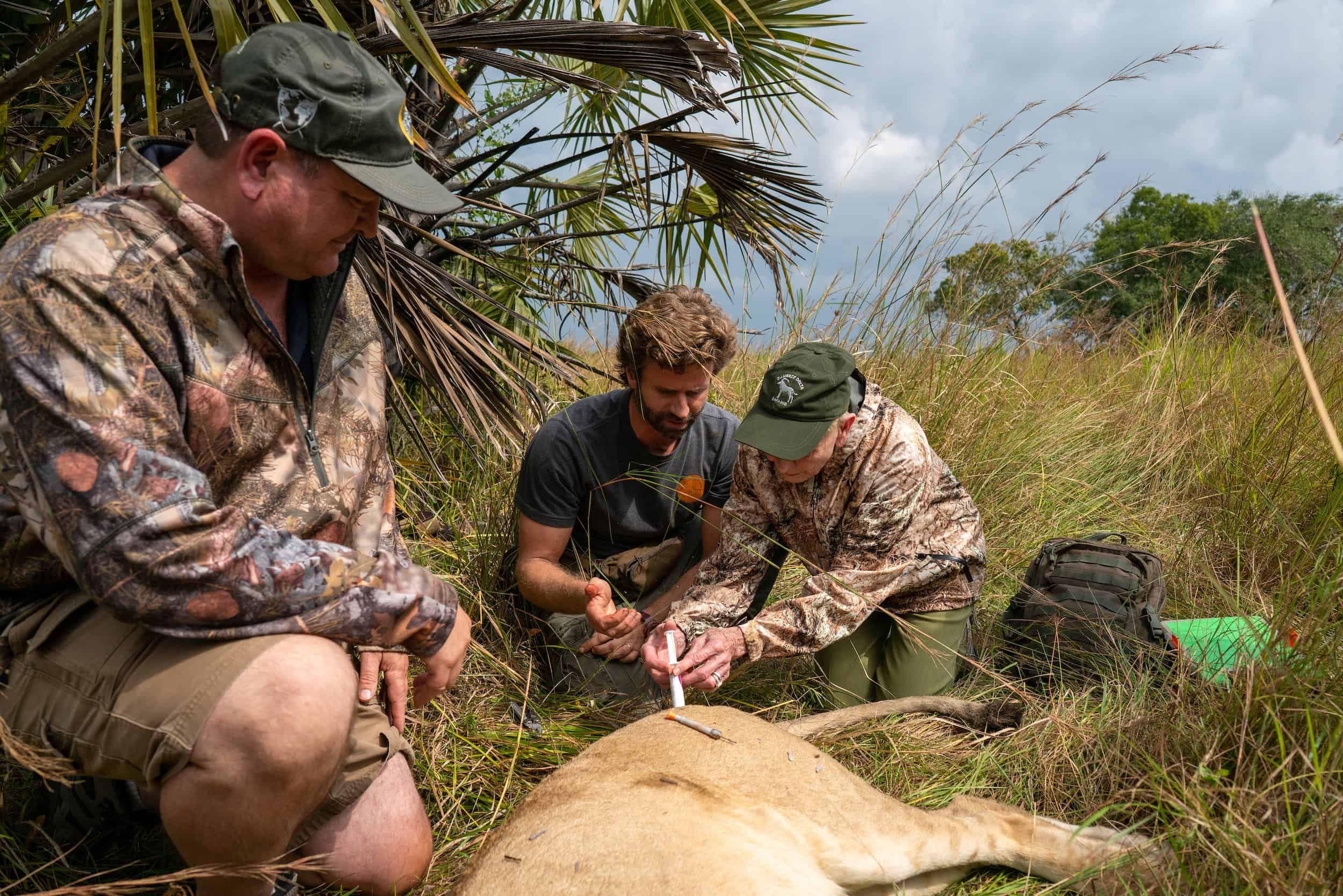
TS — It’s pretty amazing that you guys have been able to bring this to a reality and there’s so many talented, passionate people here who believe in what’s going on. And I know everybody’s super appreciative for the opportunity to work on something like this.
MC — Well, Mark Haldane was really good about going to the chief and getting all the people together, telling him how and what was going to happen, and that they would get the meat from the hunters. But he was very good in getting their involvement in it too, and telling them that if you poach, you don’t get the meat. And if you don’t poach, you’ll get the meat. The anti-poaching team that we’ve got here is amazing. They’re on the ground 24 hours a day.
TS — It’s amazing to see them care about it as well and put effort into it. It seems like there’s a sense of ownership, not just with the anti-poaching team, but also with the community. He was saying that they were helping catch poachers as well.
MC — Well, the chief had a big celebration when we brought the lions in. I mean, a huge celebration…the chief was up dancing and I mean, it was amazing. He gave a blessing for the lions, and he said they all needed to give the blessing to the lions and be happy that they’re here. We did build a clinic and put a new well in and that kind of thing to help that situation. And I think they’re very appreciative. I really do. I did visit the school that was already built, and it was great to see those little kids. They gave a little song about the lions, and we brought a lot of the family with us for that. But it’s all intertwined, everything’s intertwined. If you treat them right, they’re going to treat you right. And there’s been no conflict between the lions and the people. So, that’s been really good. It’s just a blessing.
TS — Do you have any advice or anything you learned that you’d want to share with anyone wanting to get into hunting?
MC — I would tell them, like I tell my grandkids, they have to really learn how to hunt if they’re going to be hunters. They have to go out and practice. They have to understand the caliber of a gun. That first time I shot a double rifle I got knocked on my butt, because I hadn’t shot it much. That thing took shells the size of a horse. I would tell them that they really have to have a heart for it and to be very conscious of what they’re doing.
TS — It’s great to see the grandkids out here interested and involved. I know that the hope would be that they will help carry the torch for the Cabela Family Foundation as well, but you’ve certainly paved an incredible path and a legacy for your family so far. We’re thankful to be here and be able to see that and be a part of it.
MC — Well I’m thankful you’re here too. It’s nice to get this story out. The kids know that they have to carry it on, and I’m pretty sure they will, as long as it’s a feasible thing.
TS — We’ve talked with almost everybody on the team, and there’s a recurring theme — that this is an incredible conservation success story. To have such an impact being funded almost entirely through hunting dollars is amazing. And it’s also a great case study that shows people how hunting gives back. We look forward to seeing what you and the family do next.
MC — Well, it’s been an amazing adventure so far, and I’m going to be doing it until I die. So there you are.
TS — Is there any other way?
MC — Not for me there isn’t.
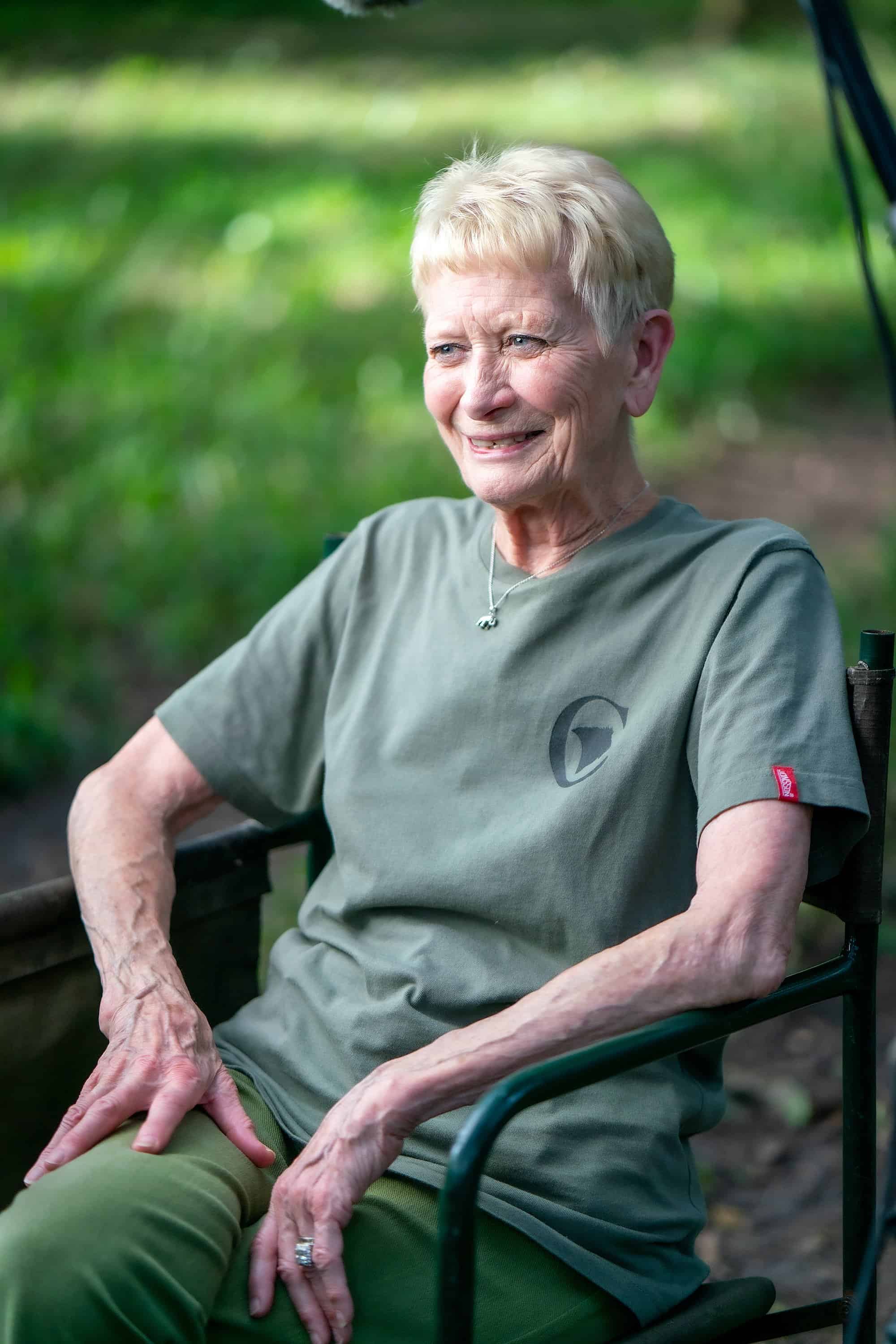
Originally published in Modern Huntsman Volume 8
Related Stories


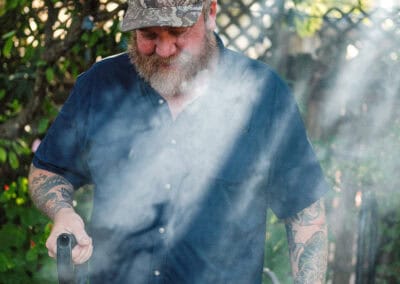
Latest Stories


